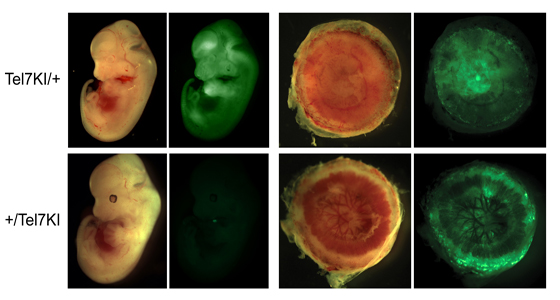The research group of Louis Lefebvre studies the phenomenon of genomic imprinting, an epigenetic system guiding the monoallelic, parent-of-origin dependent expression of specific genes in mammals.
In placental mammals, both maternal and paternal genomes are required for normal development. This non-equivalence of the parental genomes is thought to represent the main barrier against parthenogenesis in mammals. This form of asexual reproduction in which only maternal DNA contributes to the offspring is frequently observed in insects and reptiles. In mammals, the parental genomes acquired at fertilization carry different epigenetic marks which are required for normal development. Genomic imprinting refers to this differential epigenetic marking of mammalian chromosomes in the male and female germ lines. One of the consequences of these differences between paternal and maternal homologues is the mono-allelic expression of certain genes according to their parent of origin. Unlike most genes used during development, imprinted genes are therefore only expressed from one allele, the other one being silenced by epigenetic marks such as DNA methylation and histone modifications. Because of imprinting, mutations in imprinted genes can therefore behave as dominant mutations, if inherited from the expressed allele, or as recessive mutations, when present on the silent homologue. A leading evolutionary theory to explain the emergence of imprinting in mammals proposes that imprinted genes regulate the exchange of nutrients between the pregnant female and her offspring during in utero development and the early postnatal period. The finding that imprinting seems to have evolved in lineages which exhibit placentation and that several imprinted genes are implicated in the regulation of embryonic growth and placentation all support this model.



